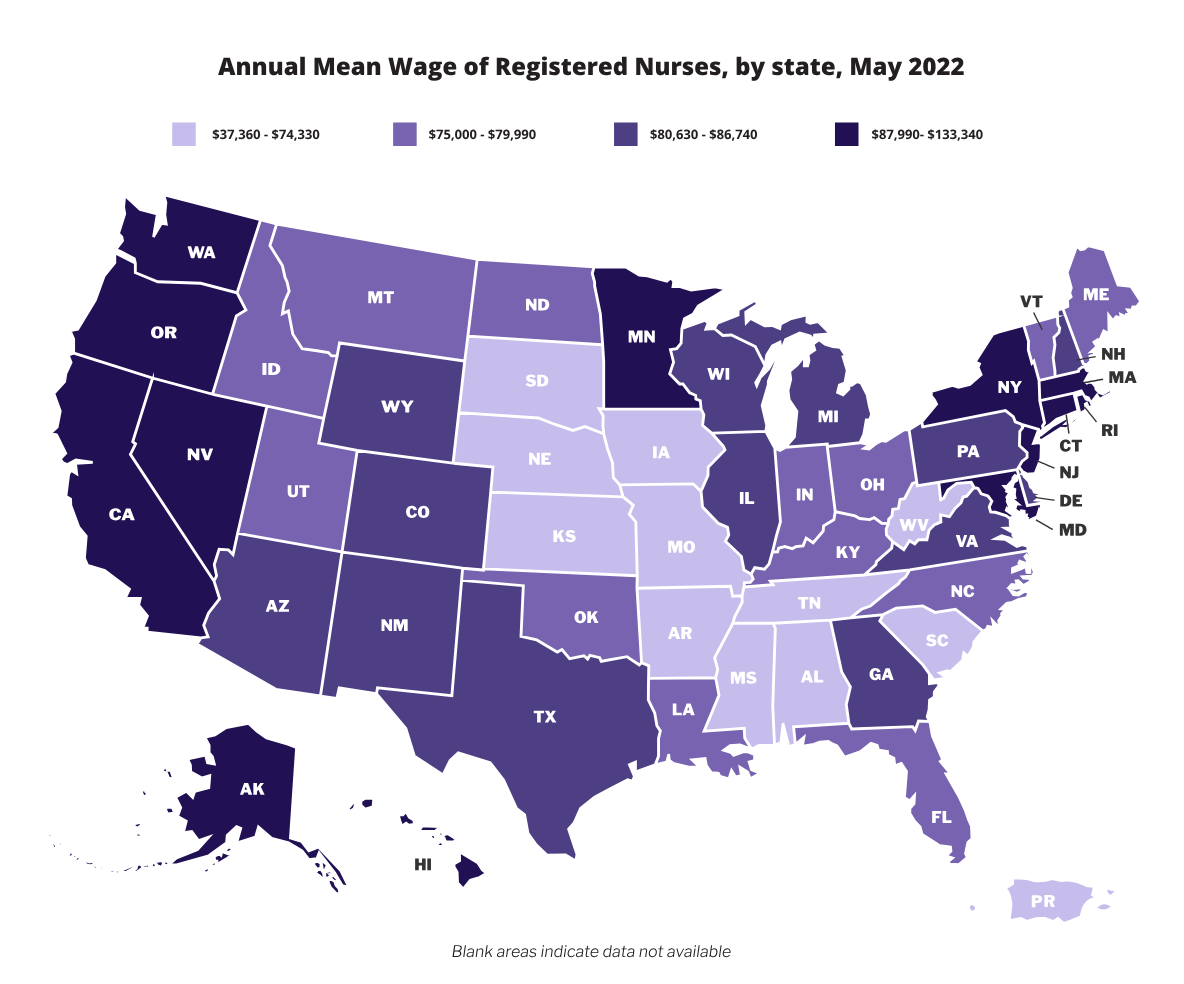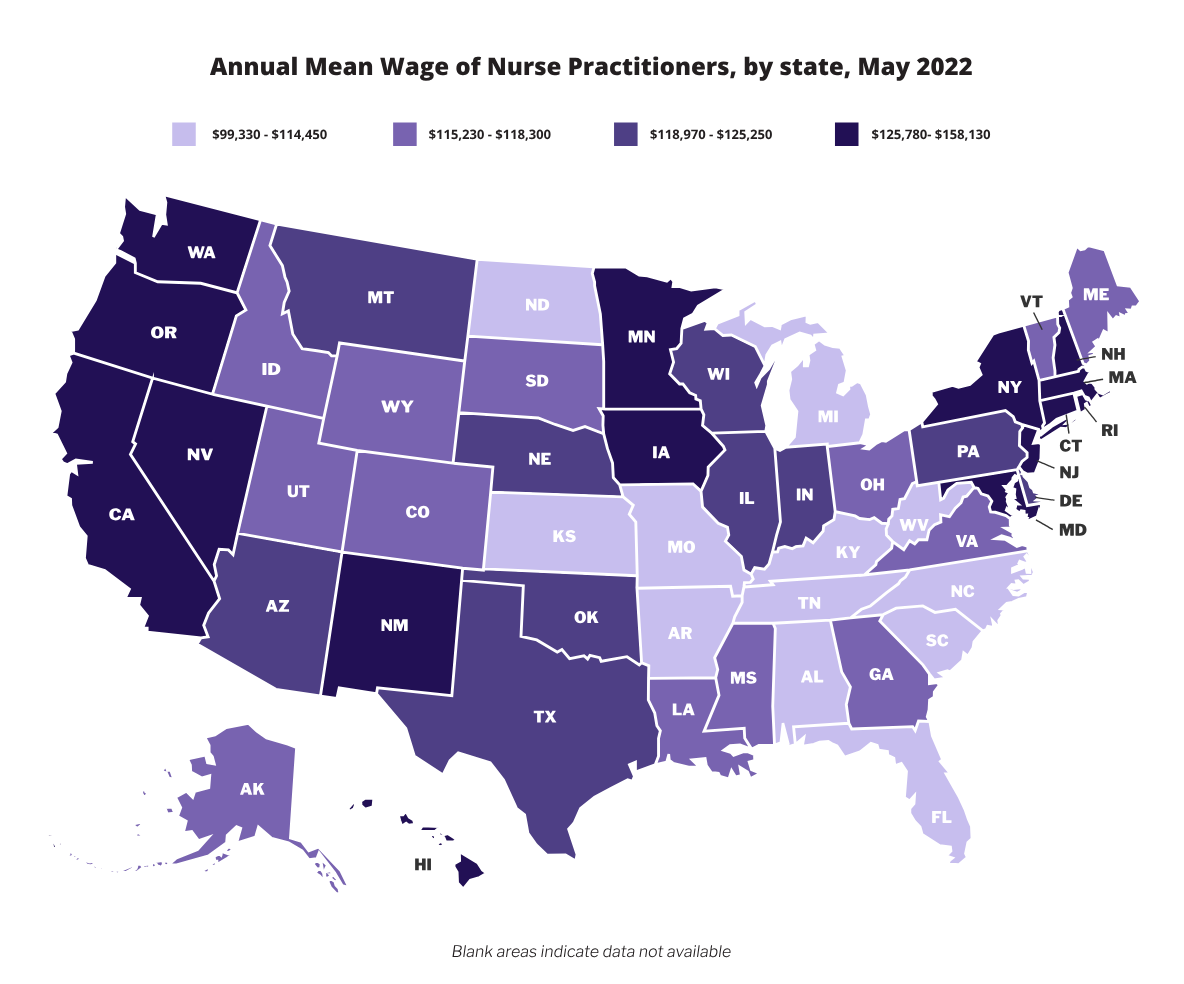

Quality improvement nurses, also known as quality assurance (QA) nurses, monitor nursing performance within their organization and develop plans to improve nursing care. This specialty requires critical thinking and problem-solving skills as QA nurses seek to find solutions for better care while also keeping staff morale high.
Good QA nurses use their experience at the bedside to promote progress in manageable and meaningful ways. They also work closely with the risk management department, dissecting adverse events in the facility and identifying points in the chain of events that could help prevent future incidents.
Many QA nurses’ tasks can be done from a computer and, as a result, a large percentage of quality improvement nurses work remotely, visiting their facilities as needed. Whether a QA nurse works from a home office or onsite, they are typically employed by these types of organizations:
Hospitals and long-term care centers can be small community facilities or enormous urban medical centers. The larger the facility, the more complex a quality improvement nurse’s job becomes. With a very large health system, QA nurses may work with a team of other quality assurance professionals, each tackling a target population. For example, one QA nurse may be in charge of all the heart failure patients or oversee quality for two or three nursing units.
In private practices and smaller community clinics, quality improvement nurses look at the big picture and create policies for improved care across the board. In the research sector, quality improvement nurses can bring their expertise to ongoing clinical trials and help develop effective studies for future improvements.
Quality improvement nurses must be able to spend a lot of their time analyzing patient charts and other data. They may dig deep into one specific patient’s chart one day and create gargantuan spreadsheets that include data from their entire patient population the next. QA nurses must know how to derive meaning from this data and use it to develop proposals for change.
In a smaller setting, quality improvement nurses may play a part in coordinating patient care from admission to discharge, assuring they have a safe place to go after they leave. All QA nurses must remember patient needs, including those of their cultural, ethnic, and religious backgrounds, and keep these aspects in mind as they develop new strategies.
QA nurses know how to collaborate with all members of the healthcare team as they develop new guidelines. Bedside nurses are much more likely to take new policies in stride when they’ve been consulted and had a hand in developing them. Many quality improvement nurses lead committees with RNs, physicians, social workers, and other medical professionals from different units to give input.
After a new policy is rolled out, quality improvement nurses must have a system in place to track the success of any changes. QA nurses can also lobby their facilities’ administration to upgrade medical equipment and computer software, which gives bedside nurses more time to see patients and offers them better quality of care.
An aspiring quality improvement nurse must first graduate from an accredited nursing program with an Associate Degree in Nursing (ADN) or a Bachelor of Science in Nursing (BSN). After obtaining their degree, nurses can work in health settings as graduate nurses (GNs). Many health facilities hire nurses as GNs and train them until they pass the National Council Licensure Examination (NCLEX-RN), their state licensing exam. Once they pass the NCLEX, GNs become registered nurses (RNs), and after their orientation period, can practice nursing independently.
RNs who wish to go into quality improvement often choose to work at the bedside for a year or two before they shift into QA nursing. After some experience, quality improvement nurses can also pursue specialty certification or they can further their education by earning a Master of Science in Nursing (MSN) with a focus on healthcare quality. It’s possible to graduate with an MSN in two years, but it may take longer to complete this degree while working full-time.
The National Association for Healthcare Quality offers the Certified Professional in Healthcare Quality (CPHQ) credential. This certification exam has no eligibility requirements and covers the following topics:
Quality improvement nurses can expect an average annual salary of $84,818 per year, according to Salary.com. Pay can differ by location and experience, from a low-end average of $74,931 to a high-end of $97,036. Depending on the workplace, employers may be able to offer higher or lower compensation.
Salaries also vary depending on which state a quality improvement nurse practices. For RNs in general, the West Coast, New England states, and Alaska pay the best, but the cost of living in these areas can also be high. The lowest paying states are in the Midwest and some southeastern states.

Source: Bureau of Labor Statistics, Occupational Employment and Wage Statistics, Registered Nurses, at https://www.bls.gov/oes/current/map_changer.htm (visited July 29, 2023).
Quality improvement nurses with an advanced degree may be able to earn more than RNs, according to the U.S. Bureau of Labor Statistics (BLS). Nurses with a master’s degree can earn an average of $121,610 annually, with a low-end average of $87,340 and a high-end of $165,240. The location of employment can affect quality improvement nurses with advanced degrees as well, with differences similar to RNs.

Source: Bureau of Labor Statistics, Occupational Employment and Wage Statistics, Registered Nurses, at https://www.bls.gov/oes/current/map_changer.htm (visited July 29, 2023).
The top paying areas for quality improvement nurses and nurse practitioners include:
Quality improvement nurses with specialty certification can earn more than nurses who are not certified. The more experience a quality improvement nurse has, the more they can earn.
Over 250,000 patients experience an adverse medical event each year in the United States, and more than 100,000 of those don’t survive the incident. Quality improvement nurses work hard to decrease these events and improve the quality of healthcare in their facilities. Nurses of all specialties are in short supply all over the United States.
The U.S. Department of Health and Human Services reports that 24% of U.S. hospitals have critical staffing shortages, and some have had to call in staffing assistance from the military. Inadequate staffing can easily lead to medical errors and quality improvement nurses will continue to be in high demand as long as the nursing shortage continues.
NursingEducation strives to provide information that is up-to-date and unbiased. By engaging professionals from multiple healthcare perspectives, we ensure our content contains accurate information that helps our readers.
We have combined decades of experience teaching, publishing research, and working with patients in all fields of medicine to create accurate and straightforward online education. Once written, each article undergoes a rigorous peer-review process to bring you the highest quality, most comprehensive content possible.
Our writers receive feedback from reviewers to clarify content, prevent misleading statements, and identify areas that would benefit from more information. Our subject matter experts and reviewers generally work full-time in their professions and work for NursingEducation part-time.
Program SearchIf you're seeking to gain your pre-licensure degree or advance your professional path, the tuition may be more reasonable than you think. Discover the nursing program that's perfect for you!